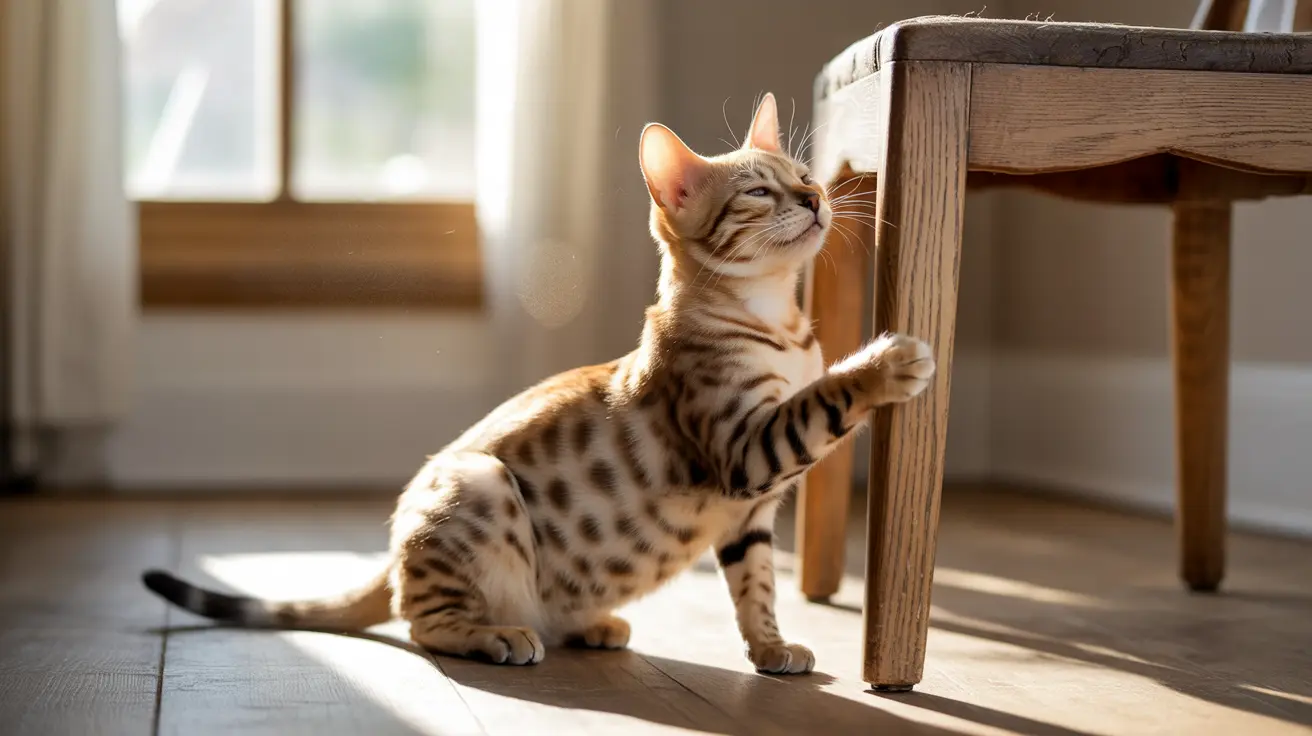If you've ever wondered why your feline friend constantly rubs their face against furniture, doorways, or even you, you're observing a fascinating behavior deeply rooted in cat communication and instinct. This behavior, known as "bunting," serves multiple crucial purposes in your cat's daily life and social interactions.
Let's explore the science behind this common feline behavior and understand what your cat is really trying to tell you when they engage in this endearing habit.
The Science of Scent Marking
Cats are equipped with specialized scent glands located on their faces, particularly around their cheeks, chin, and forehead. When they rub these areas against objects or people, they're depositing unique pheromones that serve as chemical messages to other cats and help establish their territory.
These pheromones contain specific information about your cat, including their identity, emotional state, and even their reproductive status. It's essentially your cat's way of leaving their "signature" on everything they consider important in their environment.
Territory Establishment and Ownership
When cats rub their face on furniture, walls, or other objects, they're creating what experts call "scent maps" of their territory. This behavior helps them feel secure and in control of their environment, while also communicating their presence to other cats.
In multi-cat households, this scent marking becomes particularly important as it helps establish boundaries and reduce potential conflicts between feline housemates. Each cat contributes to a communal scent that creates a harmonious living space.
Social Bonding and Affection
When your cat rubs their face against you, they're not just marking you as their territory – they're also expressing affection and trust. This behavior is similar to how cats greet other cats they consider family members in their social group.
The act of face rubbing releases endorphins in your cat's brain, making it a pleasurable experience for them. It's their way of saying "you're part of my family" and strengthening the bond between you and your pet.
Stress Relief and Environmental Adaptation
Cats often increase their face-rubbing behavior during times of change or stress. Whether it's moving to a new home, introducing a new pet, or simply rearranging furniture, cats use this behavior to help them cope with changes in their environment.
By depositing their scent more frequently, they're creating familiar reference points that help them feel more secure and comfortable in their space. This is why you might notice increased face rubbing after returning from a vacation or introducing new items into your home.
Frequently Asked Questions
Why do cats rub their face on furniture and people?
Cats rub their face on objects and people to deposit their scent through specialized glands, marking territory, expressing affection, and creating a familiar environment. This behavior helps them feel secure and establishes social bonds.
How does face rubbing help cats mark their territory?
Face rubbing deposits pheromones from scent glands located in the cat's face. These chemical markers communicate the cat's presence to others, establish boundaries, and create a map of their territory that other cats can detect.
What does it mean when my cat rubs their face on me?
When a cat rubs their face on you, they're expressing affection, claiming you as part of their family group, and marking you with their scent. It's a sign of trust and social bonding in the feline world.
Why do cats rub their cheeks more after environmental changes?
Increased face rubbing after environmental changes helps cats cope with stress by establishing familiar scent markers in their space. This behavior helps them feel more secure and adapt to new situations.
How can I encourage healthy scent marking without problems like urine spraying?
Provide appropriate scratching posts and surfaces for marking, maintain a consistent environment, and ensure multiple resources in multi-cat households. Address stress factors promptly and consult a vet if marking behaviors become excessive.
Understanding why cats rub their face on everything helps us better appreciate this natural behavior and its importance in our feline friends' lives. By recognizing and respecting this instinctive need, we can create an environment that supports our cats' physical and emotional well-being.






